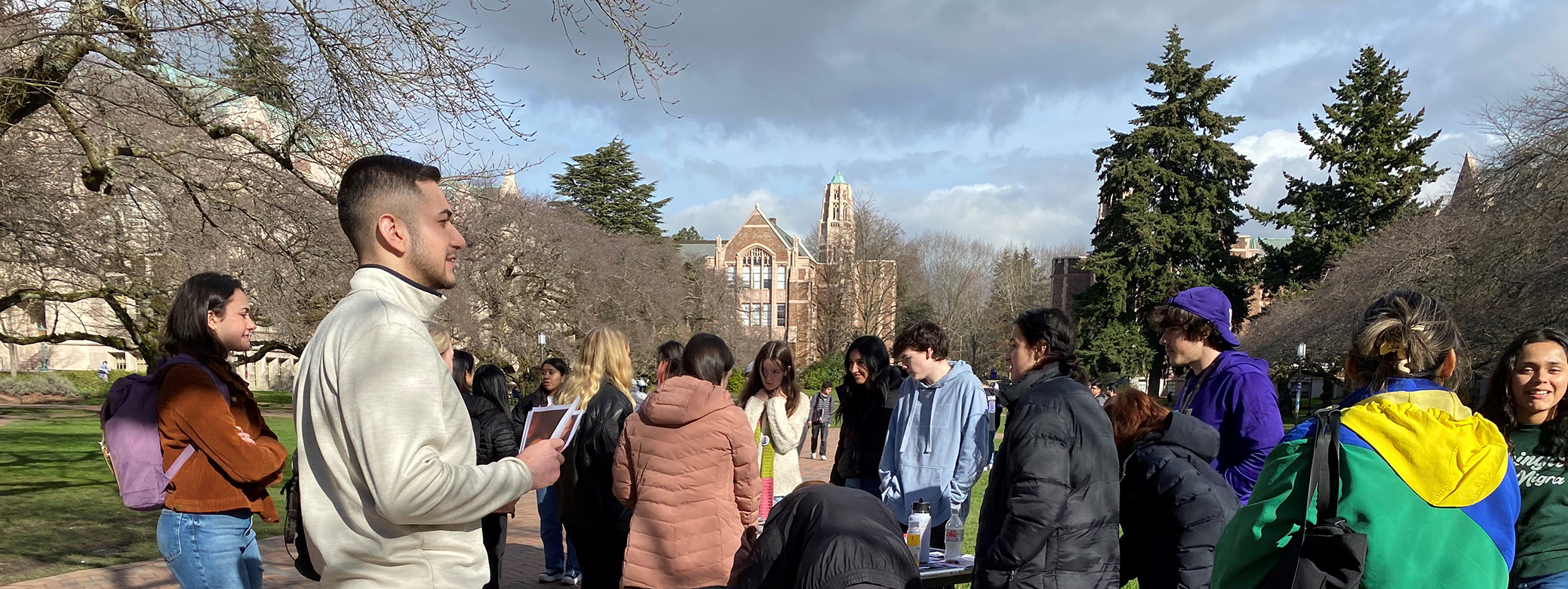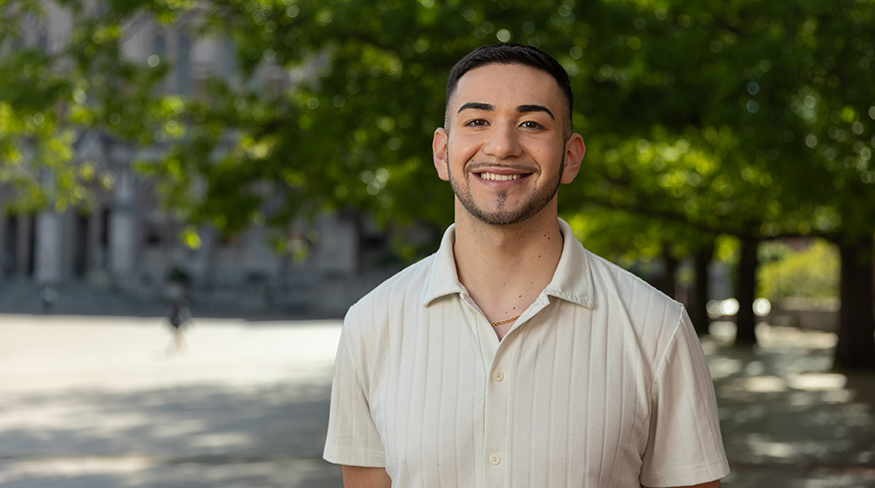
When Edgar Quiroz Sanchez told his family he’d been accepted to the University of Washington, they were proud but concerned. Most people from his tight-knit community in Pasco, Washington stayed put. He would be living on the other side of the state.
“Your family is here,” his mother said. “Why are you going so far from home?”
Quiroz Sanchez had his reasons.
“As a gay man, I wanted to experience the vibrant and welcoming community Seattle is known for,” Sanchez says. “And after I learned what the UW was about, how it’s very progressive and the research happening there has led to amazing innovations, I was really drawn to it.”
In June, Quiroz Sanchez graduated from the University of Washington College of Arts & Sciences with a BS in psychology and a BA in law, societies & justice. He held leadership roles on campus, mentored high school students, and became a powerful voice for undocumented UW students. He hopes to one day serve his Pasco community as a therapist, offering free or low-cost mental health services to immigrants. To that end, he has entered a Department of Psychology master’s program in Applied Child & Adolescent Psychology.
“To this day, my mother is always asking how much longer I’ll be in Seattle,” Quiroz Sanchez says. “When I told her I was admitted to the master’s program, she said, ‘Oh my god, another year,’” he laughs.
Undocumented and Undeterred
Though Quiroz Sanchez spent most of his childhood in Pasco, he was born in Jalisco, Mexico. His family’s journey to the US was harrowing, involving multiple attempted border crossings and a brief separation from family members. Five years old at the time, Quiroz Sanchez remembers little of that experience. In fact, he grew up mostly unaware of his undocumented status and what that might mean for his future.
“As a kid, you don’t understand it,” he says. “I knew I wasn’t born here, but I went to school like my peers and did sports like my peers. I didn’t feel the difference until high school, when I wanted to look for a job. That’s when my father explained that I didn’t have a social security number and would not be able to work as easily as my peers.”
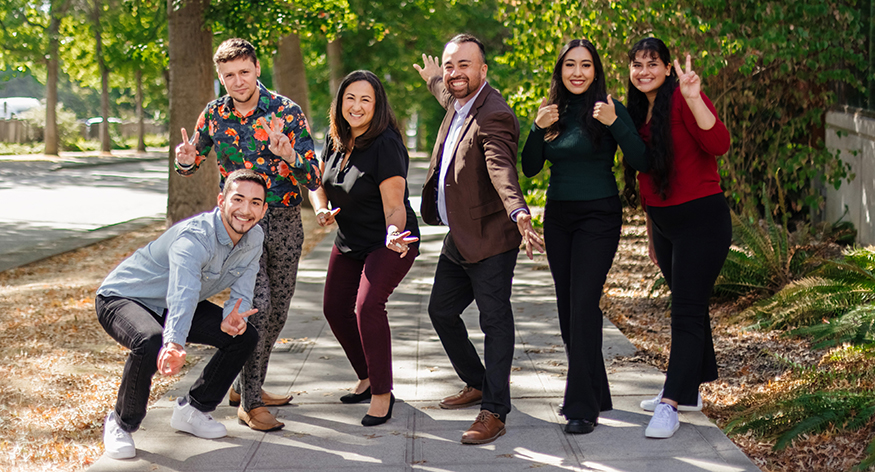
Quiroz Sanchez is open about his undocumented status, hoping that sharing his experience will help others understand the challenges that undocumented students face. He served as an Undocu Ally Training intern with Leadership Without Borders, a UW program that works with and for undocumented students. His duties included assisting at quarterly workshops where UW faculty and staff learn how they can help undocumented students succeed academically, emotionally, and financially.
In addition, Quiroz Sanchez worked as a targeted recruitment intern for the Dream Project in the UW’s Community Engagement & Leadership Education Center. The Dream Project sends UW students into Puget Sound-area schools as mentors, supporting middle and high school students with college access and post-secondary planning. In his recruitment role, Quiroz Sanchez was tasked with adding more undocumented UW students to the Dream Project staff — and finding creative ways to compensate them for their work.
A Mentor to Many
Quiroz Sanchez’s role with The Dream Project brought him full circle. When he arrived at the UW, he knew almost no one and joined The Dream Project as a way to make connections. Back then, he visited Rainier Beach High School three times a week as a College & Career Readiness Assistant for the Dream Project. It was the first of many UW experiences that would expand his world.
“It was a very diverse group of high school students,” he says. “That was refreshing to me, because even as an immigrant, there are so many other immigrant communities to learn about.”
The experience was satisfying — particularly when students he mentored were accepted to the college of their choice — but Quiroz Sanchez longed for more on-campus connections at the UW. That led him to become an orientation leader with UW First Year Programs, leading orientation sessions for admitted students. He was later promoted to student coordinator, which meant training and supervising the next cohort of orientation leaders.
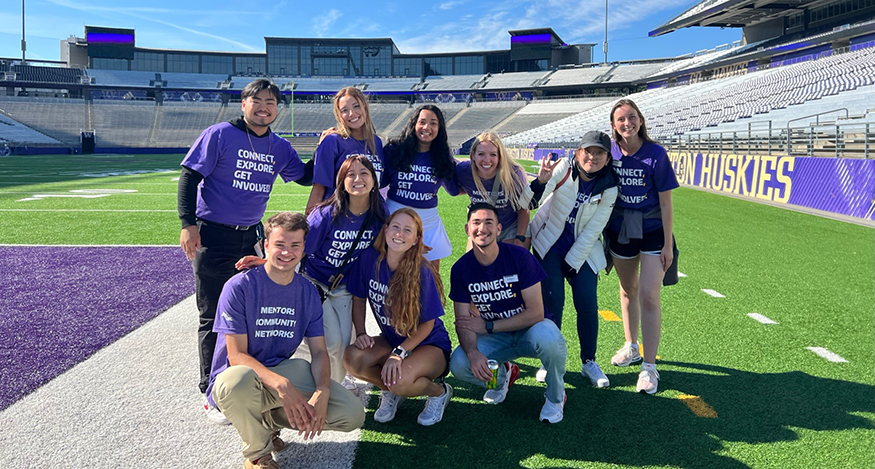
By senior year, all of Quiroz Sanchez’s experiences prepared him for his role with Leadership Without Borders and his return to The Dream Project. All of Quiroz Sanchez’s jobs have been paid positions, with the units involved finding ways to compensate him legally.
Connecting Two Majors
Though leadership roles kept Quiroz Sanchez busy, he also found time to complete two majors. He arrived on campus with plans to become a math teacher, but that plan was quickly derailed when he took courses in psychology and law, societies & justice (LSJ) and fell in love with both disciplines.
“At first it was refreshing to have two separate topics, to switch between two things I was interested in,” he says. “But as I started taking higher level courses, I began to see how those two fields are not so different. In an immigration law course in LSJ, mental health considerations came up a lot. In psychology courses, we discuss how mental health can impact your predisposition to criminality. The connections became clearer.”
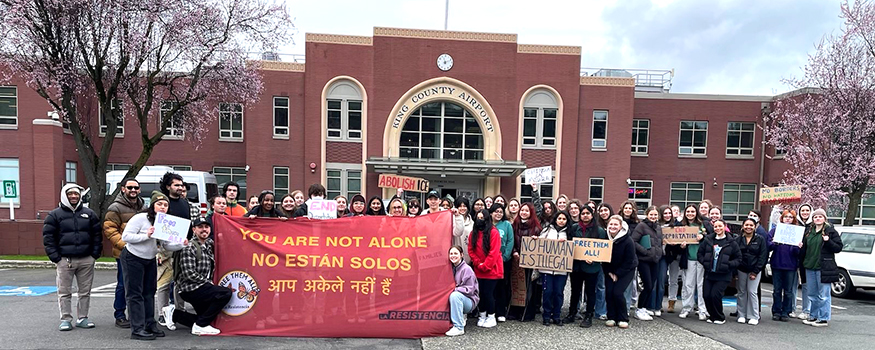
Immigration was an ongoing focus of Quiroz Sanchez’s work in LSJ during his senior year. He completed a yearlong LSJ course, Storytelling for Migrant Justice, that involved interviewing detainees at the Northwest Detention Center in Tacoma about their experiences. Students in the course also interviewed (by phone) individuals forcibly removed from the US. Quiroz Sanchez and others shared some of the stories at a storytelling event at the Seattle Rep and at other readings. A book of the stories will be published by Hinton Publishing next year.
That was a project Quiroz Sanchez could not have imagined when he first arrived at the UW from Pasco. The same is true for many of his UW experiences.
“Coming to the UW pushed me to challenge myself,” he says. “At first I was uncomfortable in this new place, having to figure out who I was and what I wanted to do. But being a mentor to other students has been empowering. I’m surprised at how much smaller it’s made the campus feel. Now it feels like home.”
More Stories
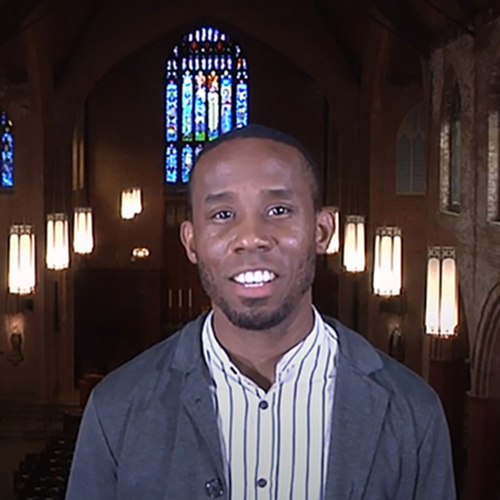
Celebrating Black Composers
A video project led by School of Music professor Stephen Price highlights the work of Black composers for organ and provides historical context.

An Earful of AI
Hearing aid technology is improving all the time with the help of AI, thanks to researchers like Yi Shen, professor of speech & hearing sciences.

Imagining the Future of Higher Education & the Liberal Arts
The Futurists, a group of Arts & Science faculty and leadership, are exploring the possibilities for higher education and the liberal arts many decades from now.
